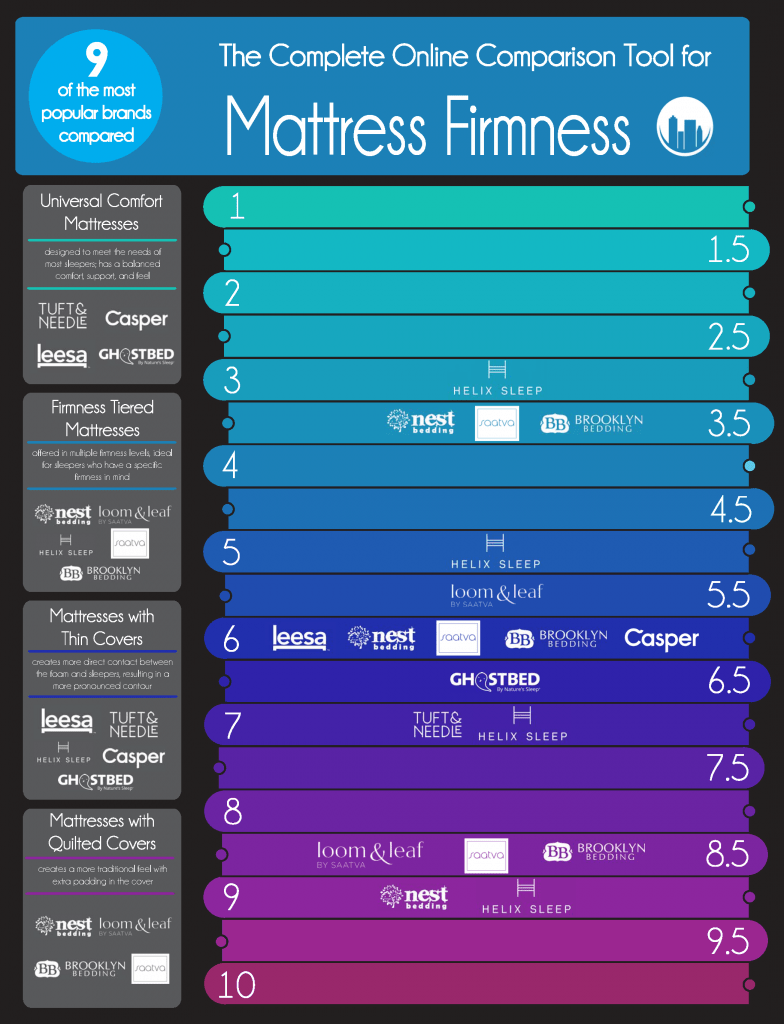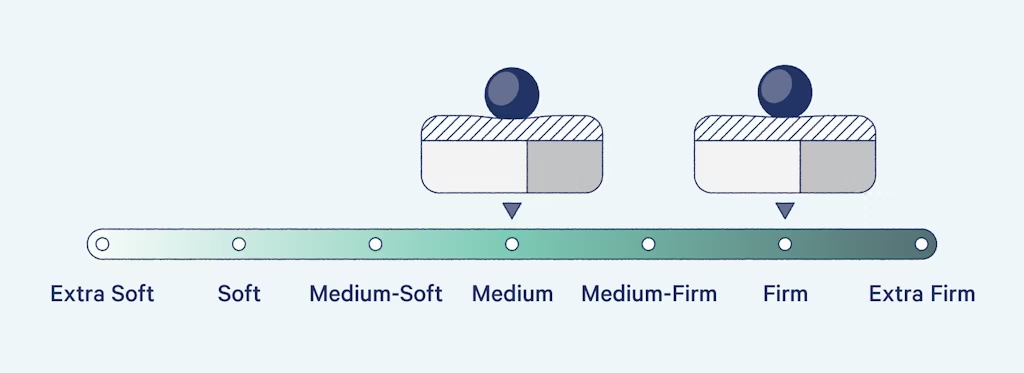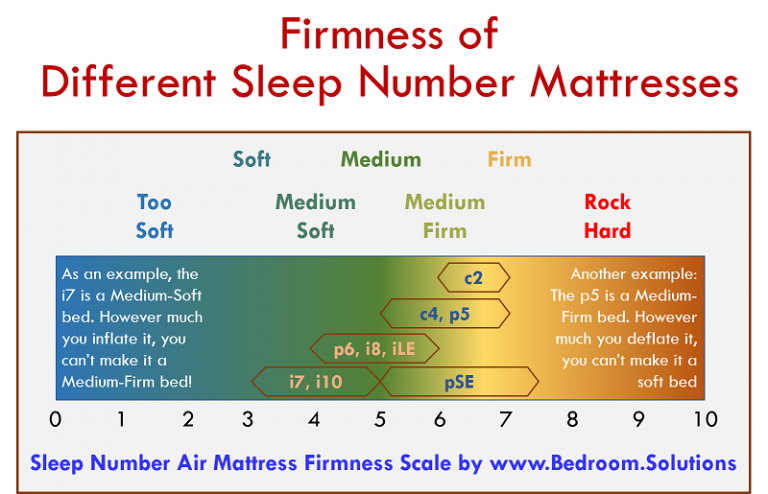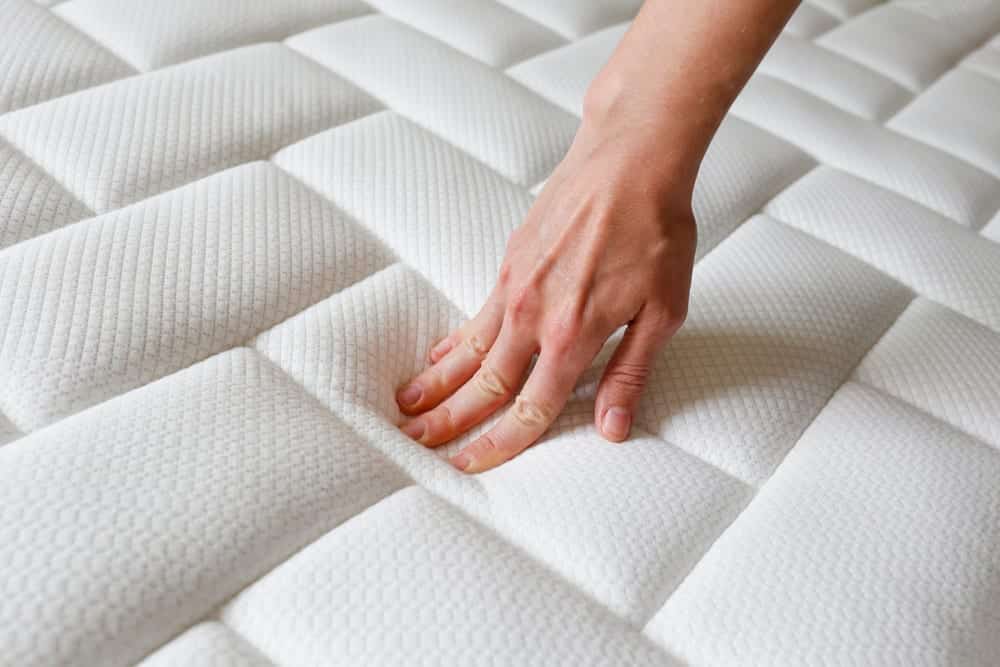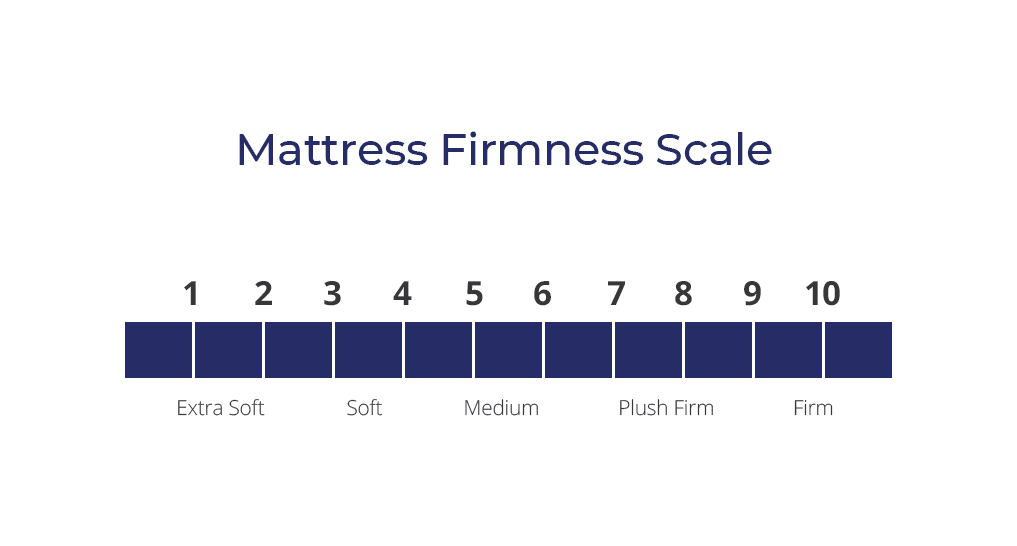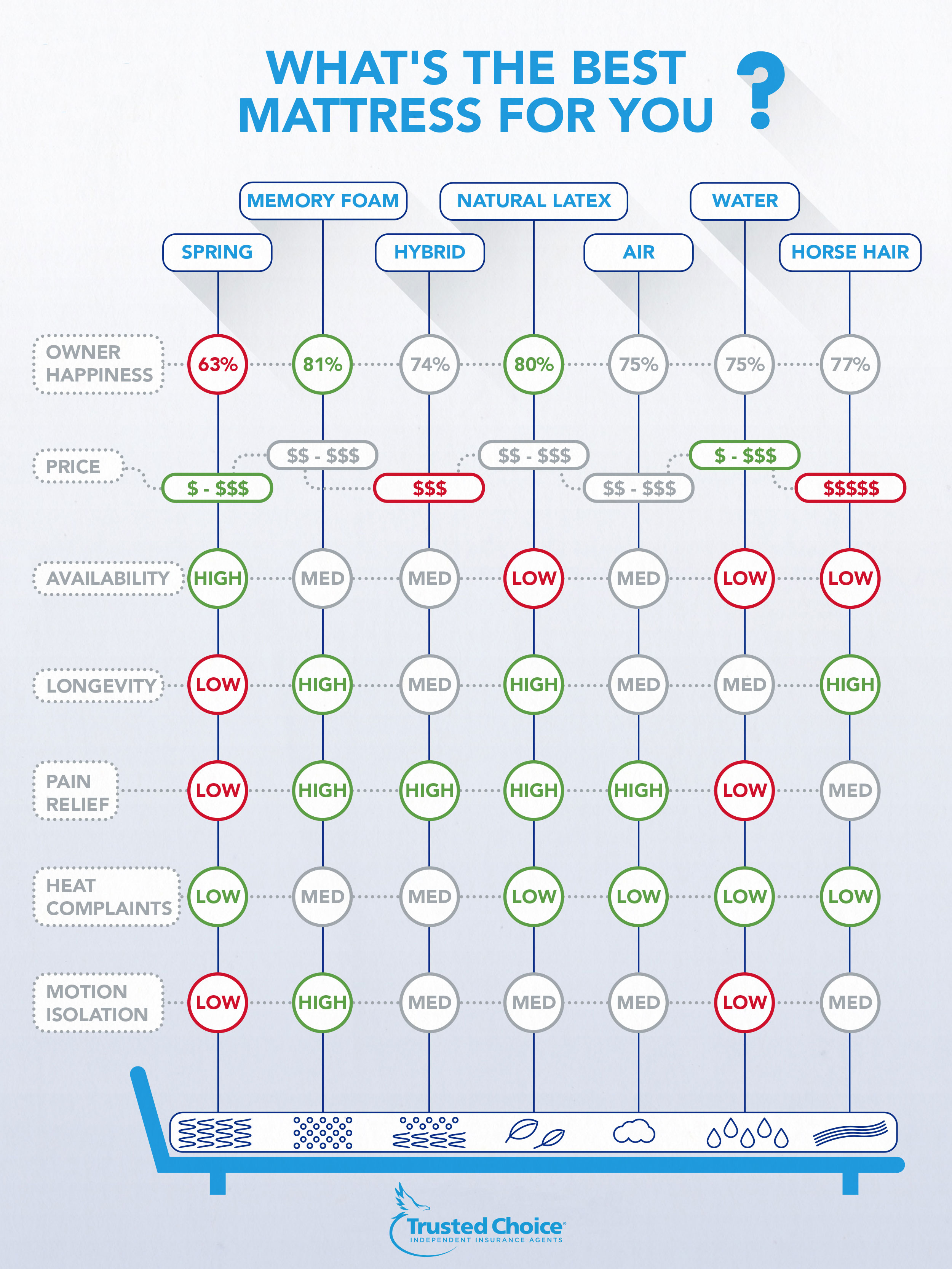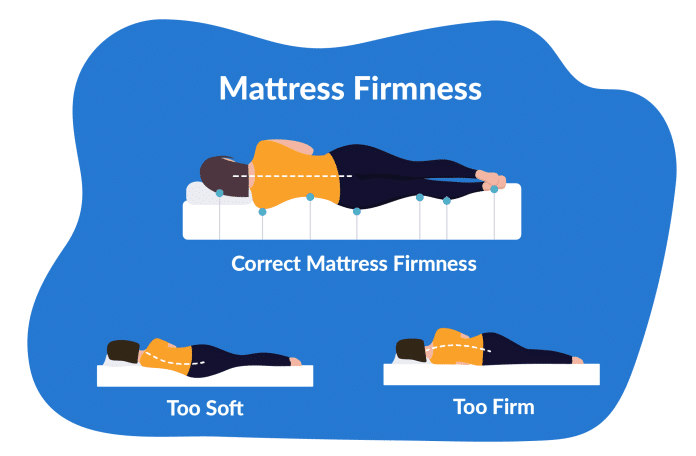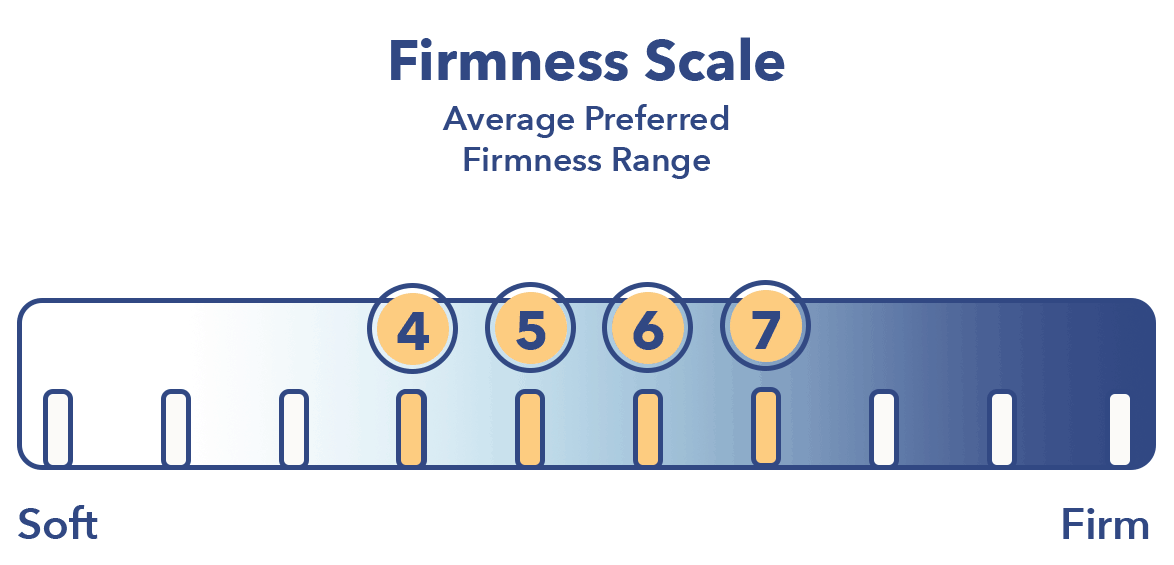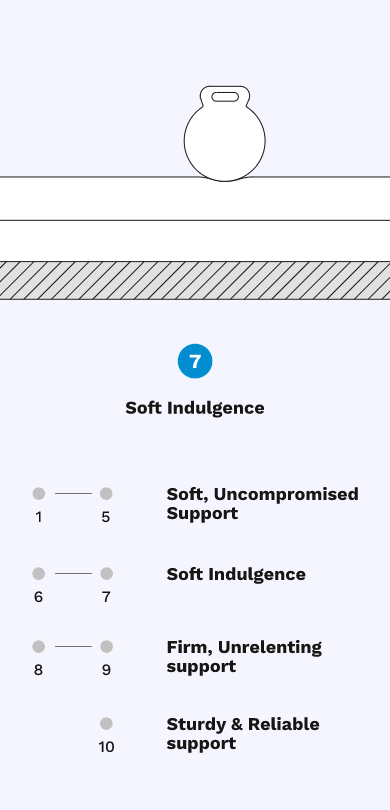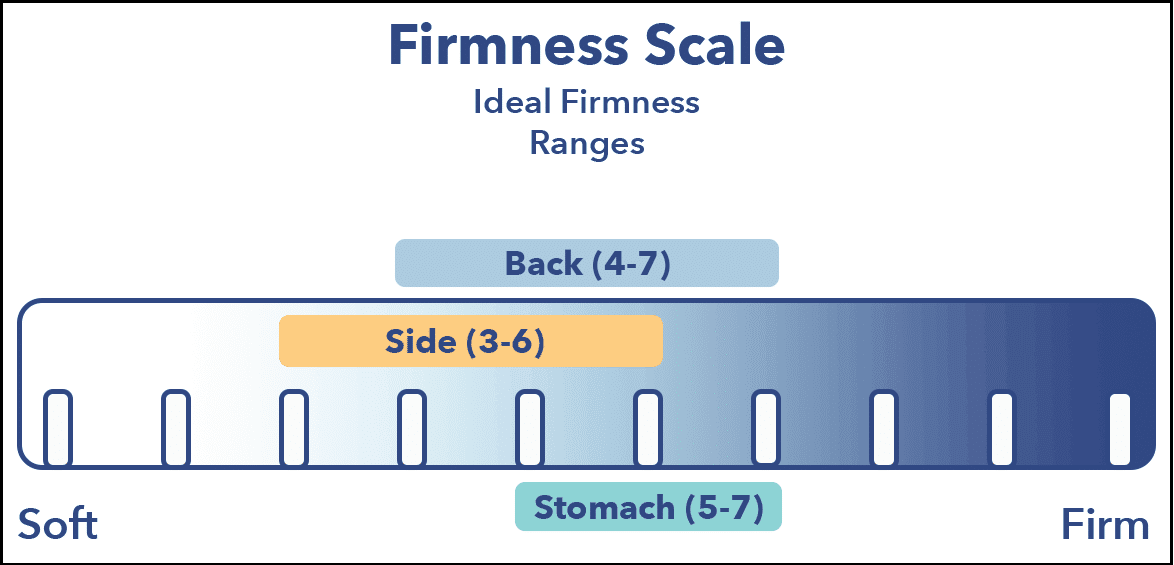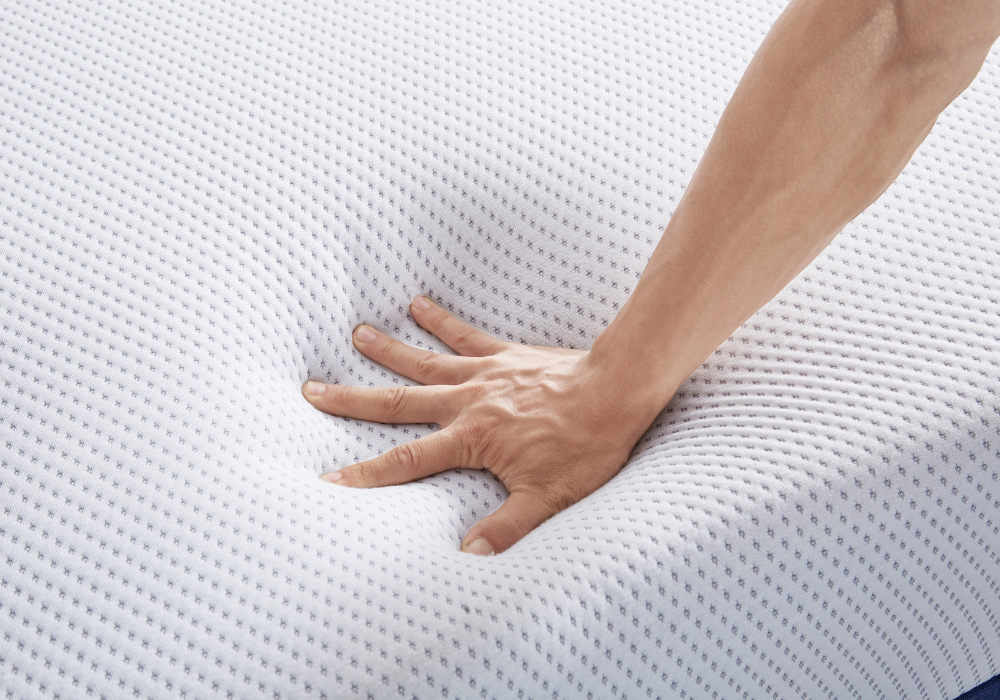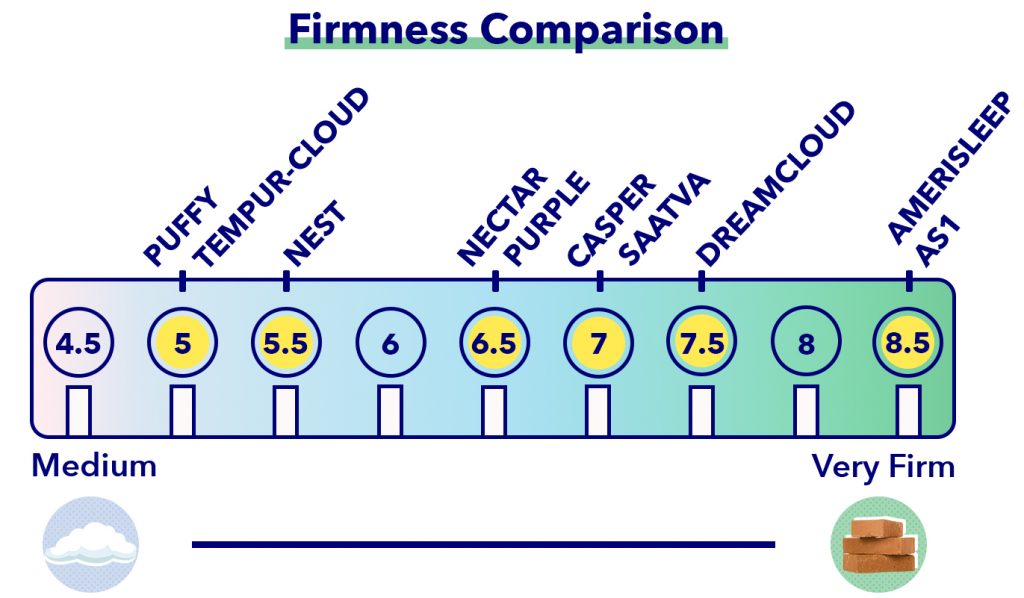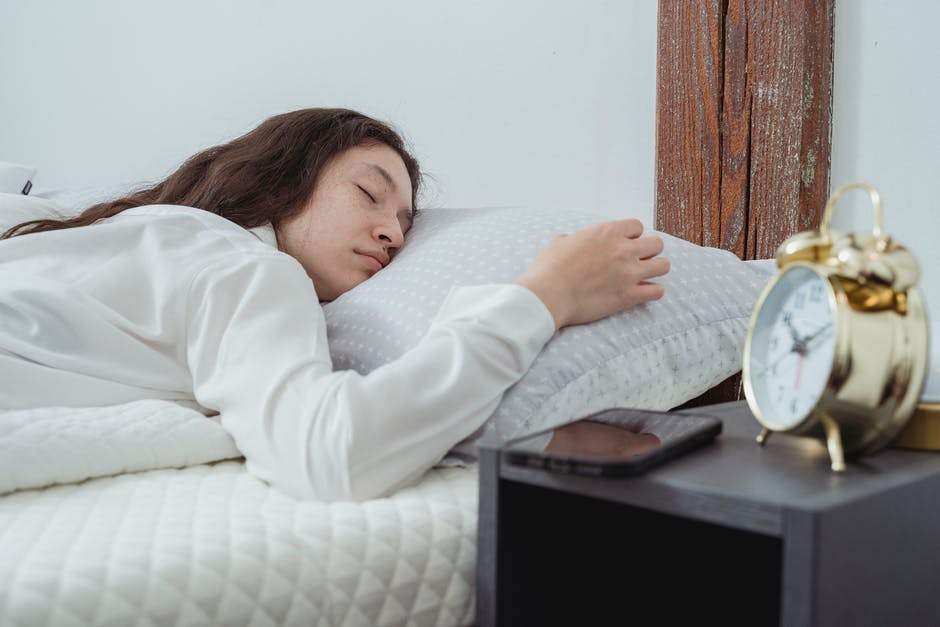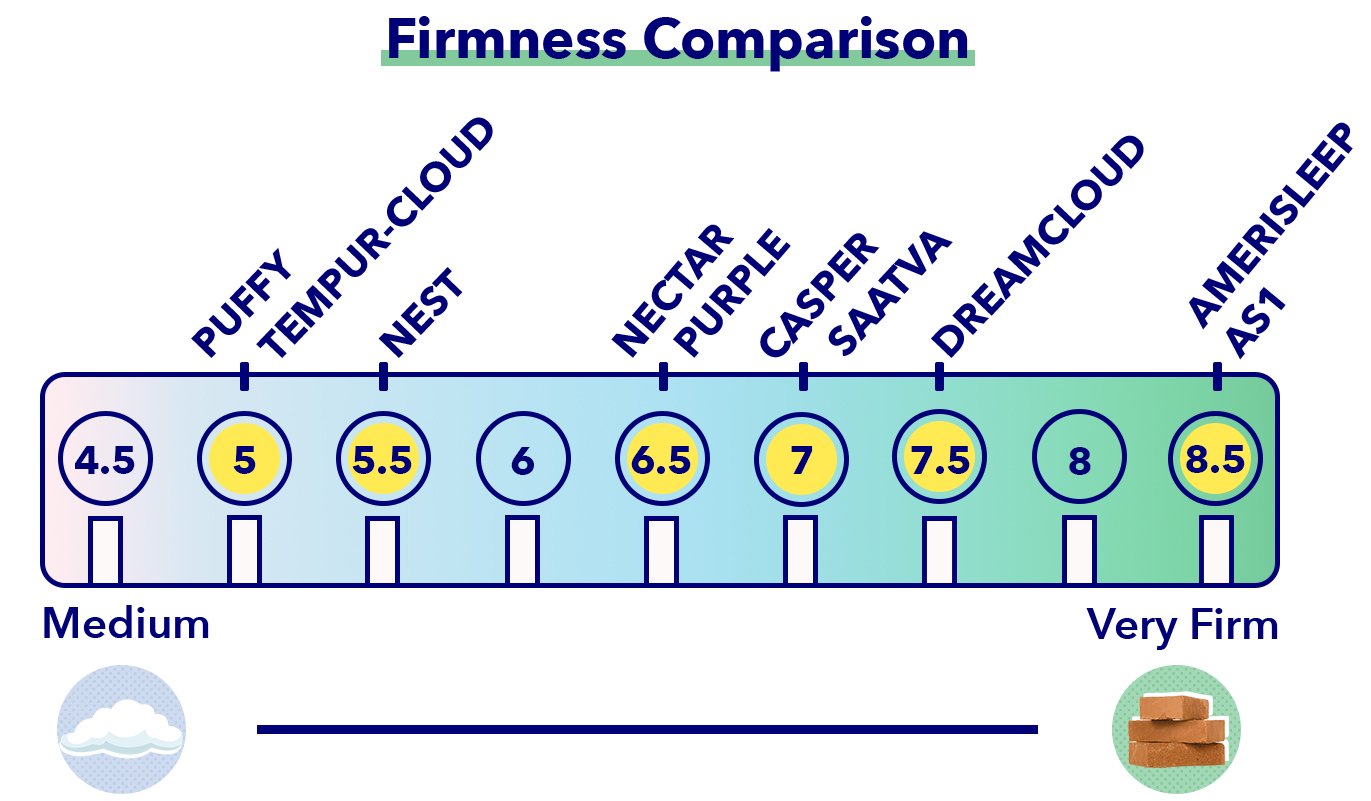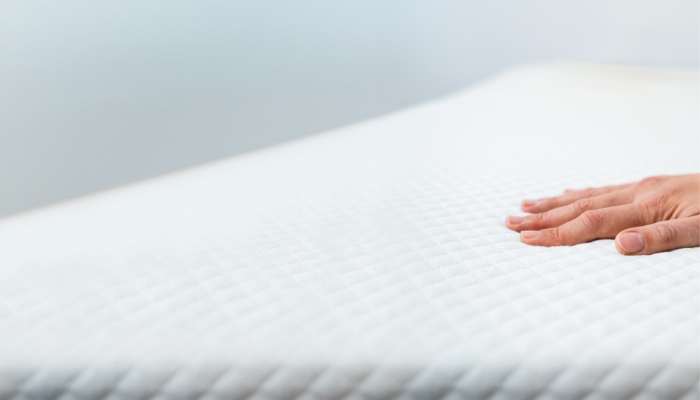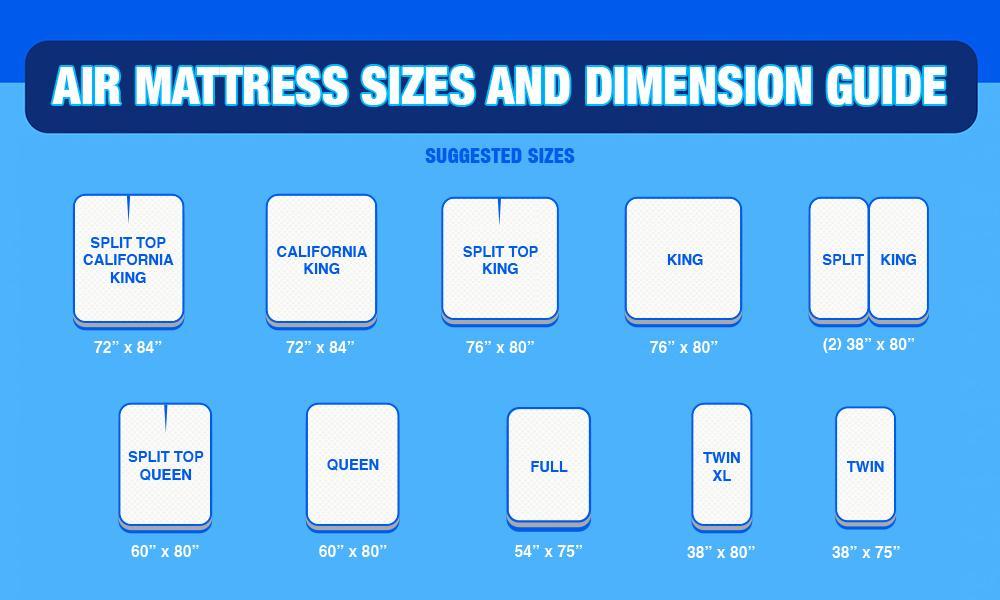Mattress Firmness Rating Scale Explained
When it comes to choosing a new mattress, one of the most important factors to consider is its firmness rating. But what exactly does this rating mean? And how do you know which firmness level is right for you? In this article, we will break down the mattress firmness rating scale and provide you with all the information you need to make an informed decision when purchasing a new mattress.
Understanding Mattress Firmness Ratings
Mattress firmness is measured on a scale from 1 to 10, with 1 being the softest and 10 being the firmest. This scale is used to rate the overall feel of a mattress, taking into consideration factors such as comfort, support, and pressure relief. The higher the number, the firmer the mattress will feel.
It’s important to note that mattress firmness is subjective and can vary depending on personal preferences and body type. What feels firm to one person may feel soft to another. Therefore, it’s crucial to understand your own preferences and needs when it comes to mattress firmness.
How to Choose the Right Mattress Firmness
Choosing the right mattress firmness is essential for a good night’s sleep. The ideal firmness level will provide you with the right balance of comfort and support, ensuring that your body is properly aligned while you sleep. Here are some tips to help you determine which firmness level is right for you:
Consider your body weight: Your body weight plays a significant role in determining the ideal firmness level. For instance, if you are on the lighter side, you may prefer a softer mattress, while those who are heavier may need a firmer mattress for proper support.
Take your sleeping position into account: Your sleeping position can also affect the firmness level you need. Side sleepers may benefit from a softer mattress to relieve pressure on their hips and shoulders, while back and stomach sleepers may prefer a firmer mattress for better spinal alignment.
Consider any pre-existing conditions: If you have any pre-existing conditions such as back pain or joint pain, you may need a mattress with a specific firmness level to accommodate your needs. Consult with your doctor or physical therapist for recommendations.
Mattress Firmness Scale: What Do the Numbers Mean?
Now that you understand the importance of mattress firmness and how to choose the right level for your needs, let’s take a closer look at what each number on the firmness scale represents:
1 - 2: Extremely soft and plush, these mattresses provide maximum contouring and sinkage. They are ideal for side sleepers or anyone who prefers a “hugging” feeling from their mattress.
3 - 4: These mattresses are considered medium-soft and offer a good balance of contouring and support. They are suitable for side and combination sleepers.
5 - 6: Medium-firm mattresses are the most common and provide a balance of comfort and support. They are suitable for all sleeping positions and body types.
7 - 8: These mattresses are considered firm and provide excellent support for back and stomach sleepers. They may be too hard for some individuals, so it’s essential to try them out before purchasing.
9 - 10: Extremely firm mattresses are not very common and are typically used for orthopedic purposes. They offer minimal sinkage and are ideal for heavier individuals or those with specific medical conditions.
The Ultimate Guide to Mattress Firmness Ratings
Now that you have a better understanding of the firmness scale, it’s time to dive deeper into the different levels and what they mean for your sleep experience. Let’s explore the pros and cons of each firmness level.
Mattress Firmness Scale: A Comprehensive Breakdown
1 - 2: As mentioned earlier, mattresses with a firmness rating of 1 to 2 are exceptionally soft and plush. They are often made with memory foam or other high-density materials that provide maximum contouring. These mattresses are ideal for side sleepers or anyone who prefers a “cradling” feeling from their mattress. However, they may not offer enough support for heavier individuals or those with back problems.
3 - 4: Mattresses in this firmness range are considered medium-soft and provide a good balance of contouring and support. They are suitable for side and combination sleepers, as they offer enough cushioning for pressure points while still providing support for the spine. However, they may not be firm enough for back or stomach sleepers and may cause excessive sinking.
5 - 6: As mentioned earlier, medium-firm mattresses are the most common and provide a good balance of comfort and support. They are suitable for all sleeping positions and body types, making them a popular choice for couples with different preferences. However, they may not be soft enough for side sleepers or firm enough for stomach sleepers.
7 - 8: These mattresses are considered firm and provide excellent support for back and stomach sleepers. They are made with high-density materials and offer minimal sinkage, making them ideal for maintaining proper spinal alignment. However, they may feel too hard for some individuals and may not provide enough cushioning for pressure points.
9 - 10: Extremely firm mattresses are not very common and are typically used for orthopedic purposes. They offer minimal sinkage and are ideal for heavier individuals or those with specific medical conditions. However, they may be too hard for the average sleeper and may not provide enough contouring for a comfortable sleep experience.
Finding Your Perfect Mattress Firmness: Tips and Tricks
Still unsure which firmness level is right for you? Here are some additional tips to help you make the best decision:
Try before you buy: The best way to determine if a mattress is the right firmness for you is to test it out in person. Visit a mattress store and spend some time lying on different mattresses to see which one feels the most comfortable.
Read reviews: Check out online reviews from other customers to get an idea of how a particular mattress feels and performs. Keep in mind that reviews are subjective and may not reflect your own experience, but they can provide valuable insights.
Consider the materials: The materials used in a mattress can also affect its firmness level. For example, innerspring mattresses tend to feel firmer than memory foam mattresses, so keep this in mind when choosing a material.
Mattress Firmness Scale: What You Need to Know
Now that you have a better understanding of the mattress firmness rating scale, you can confidently choose the right level for your needs. Remember to consider your body weight, sleeping position, and any pre-existing conditions when making your decision. And don’t be afraid to try out different mattresses to find the perfect fit for you.
The Importance of Mattress Firmness for a Good Night's Sleep
The firmness of your mattress plays a crucial role in the quality of your sleep. A mattress that is too soft or too firm can lead to discomfort, pain, and poor spinal alignment, resulting in a restless night’s sleep. By choosing the right firmness level, you can ensure that your body is properly supported and comfortable, allowing you to wake up feeling refreshed and well-rested.
Mattress Firmness Rating Scale: A Complete Overview
In conclusion, the mattress firmness rating scale is an essential factor to consider when purchasing a new mattress. It helps you determine the overall feel and support of a mattress and allows you to find the perfect fit for your needs. Remember to take your body weight, sleeping position, and any pre-existing conditions into account when choosing a firmness level, and don’t be afraid to try out different mattresses to find the perfect fit for you. Sweet dreams!
The Importance of Choosing the Right Mattress Firmness
Understanding the Mattress Firmness Rating Scale
 When it comes to creating the perfect bedroom design, choosing the right mattress is crucial. After all, a good night's sleep is essential for our overall health and well-being. One of the most important factors when shopping for a new mattress is its firmness. But with so many options available, it can be overwhelming to determine which level of firmness is right for you. This is where the
mattress firmness rating scale
comes in.
The
mattress firmness rating scale
is a standardized measurement used to rate the firmness level of a mattress. It typically ranges from 1 to 10, with 1 being the softest and 10 being the firmest. This scale is based on a variety of factors such as the materials used, the number of layers, and the overall design of the mattress.
When it comes to creating the perfect bedroom design, choosing the right mattress is crucial. After all, a good night's sleep is essential for our overall health and well-being. One of the most important factors when shopping for a new mattress is its firmness. But with so many options available, it can be overwhelming to determine which level of firmness is right for you. This is where the
mattress firmness rating scale
comes in.
The
mattress firmness rating scale
is a standardized measurement used to rate the firmness level of a mattress. It typically ranges from 1 to 10, with 1 being the softest and 10 being the firmest. This scale is based on a variety of factors such as the materials used, the number of layers, and the overall design of the mattress.
Why Firmness Matters
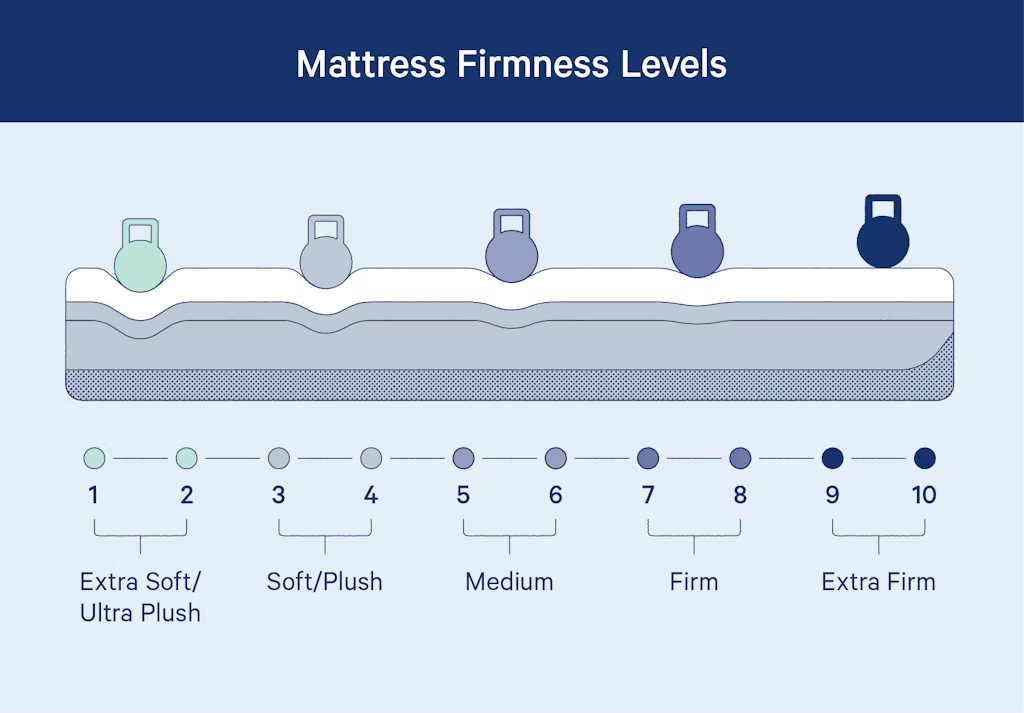 Many people assume that a firmer mattress is always better, but this is not necessarily the case. The right level of firmness ultimately depends on your personal preferences and specific sleep needs. For example, if you suffer from back pain, a firmer mattress may provide better support for your spine. On the other hand, if you prefer a softer, more plush feel, a mattress with a lower firmness rating may be a better fit.
Choosing the right firmness level is crucial for getting a good night's sleep and ensuring that your body is properly supported while you rest.
This can lead to improved sleep quality and a reduction in aches and pains. It's also important to note that different sleeping positions may require different levels of firmness. For example, side sleepers may prefer a softer mattress to alleviate pressure on their shoulders and hips, while stomach sleepers may benefit from a firmer mattress to keep their spine aligned.
Many people assume that a firmer mattress is always better, but this is not necessarily the case. The right level of firmness ultimately depends on your personal preferences and specific sleep needs. For example, if you suffer from back pain, a firmer mattress may provide better support for your spine. On the other hand, if you prefer a softer, more plush feel, a mattress with a lower firmness rating may be a better fit.
Choosing the right firmness level is crucial for getting a good night's sleep and ensuring that your body is properly supported while you rest.
This can lead to improved sleep quality and a reduction in aches and pains. It's also important to note that different sleeping positions may require different levels of firmness. For example, side sleepers may prefer a softer mattress to alleviate pressure on their shoulders and hips, while stomach sleepers may benefit from a firmer mattress to keep their spine aligned.
Factors to Consider
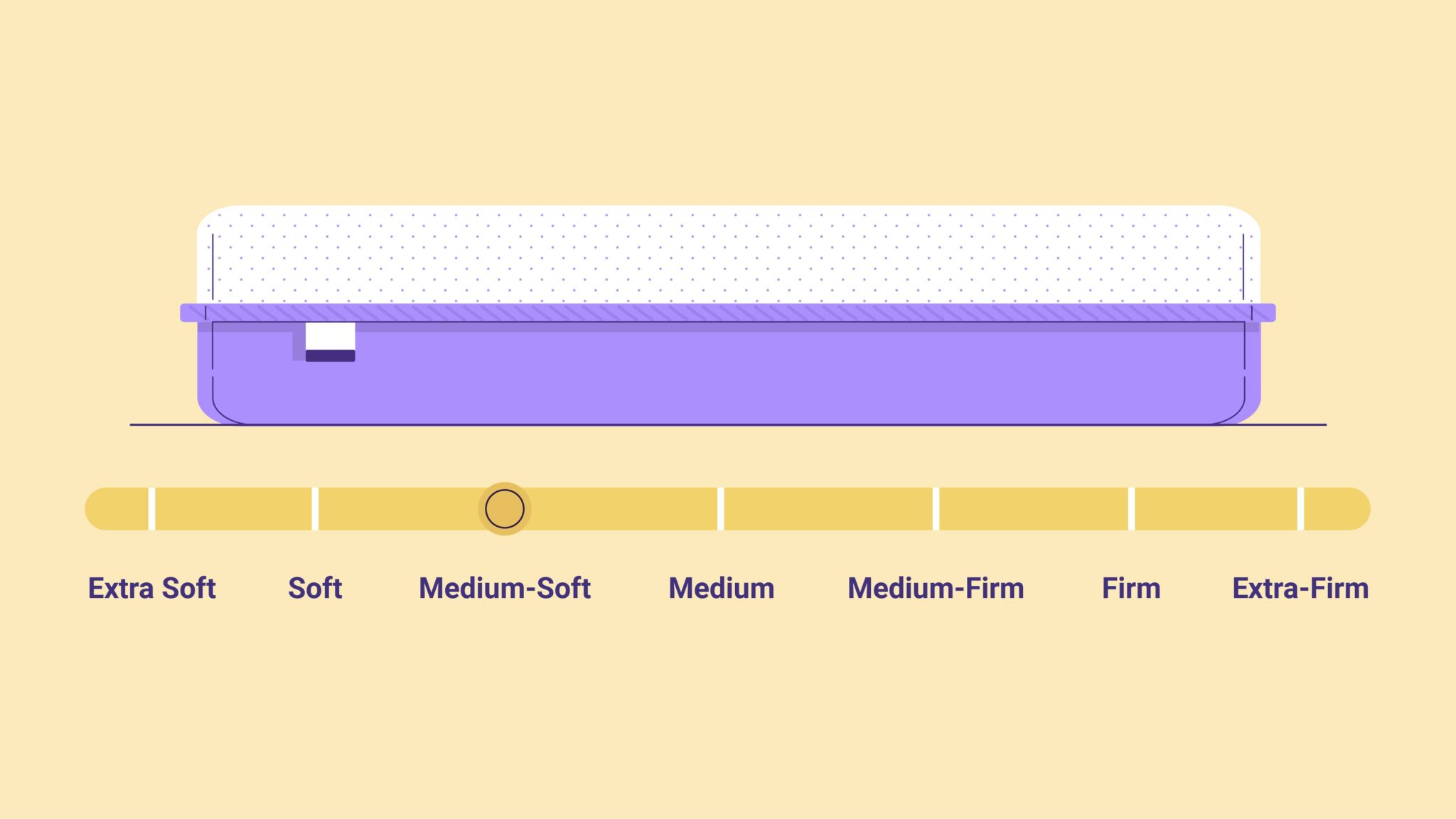 When shopping for a new mattress, it's essential to consider your body weight, sleeping position, and any specific sleep issues you may have. For example, a lighter person may prefer a softer mattress, while a heavier person may require a firmer one for proper support. Additionally, materials such as memory foam or latex can affect the firmness level of a mattress. It's important to do your research and try out different options to find the perfect balance of comfort and support for your body.
In conclusion, the
mattress firmness rating scale
is a helpful tool in choosing the right mattress for your needs. By understanding this scale and considering your own preferences and sleep habits, you can make a more informed decision when it comes to purchasing a new mattress. Invest in a mattress with the right level of firmness, and you'll be on your way to a better night's sleep.
When shopping for a new mattress, it's essential to consider your body weight, sleeping position, and any specific sleep issues you may have. For example, a lighter person may prefer a softer mattress, while a heavier person may require a firmer one for proper support. Additionally, materials such as memory foam or latex can affect the firmness level of a mattress. It's important to do your research and try out different options to find the perfect balance of comfort and support for your body.
In conclusion, the
mattress firmness rating scale
is a helpful tool in choosing the right mattress for your needs. By understanding this scale and considering your own preferences and sleep habits, you can make a more informed decision when it comes to purchasing a new mattress. Invest in a mattress with the right level of firmness, and you'll be on your way to a better night's sleep.
